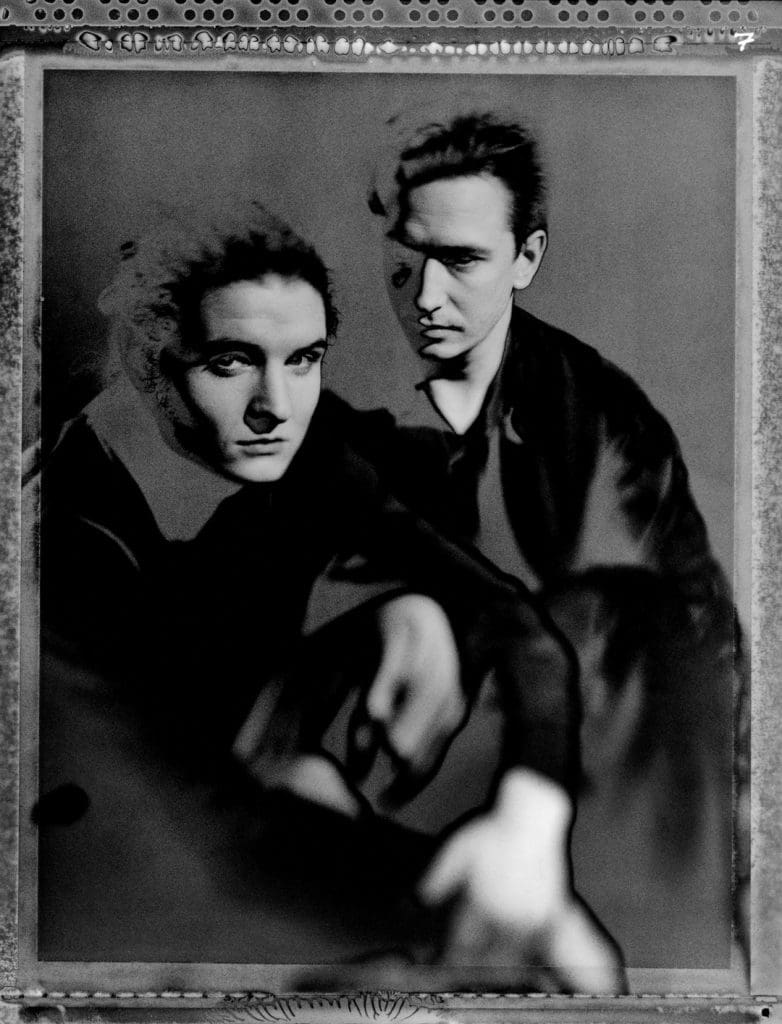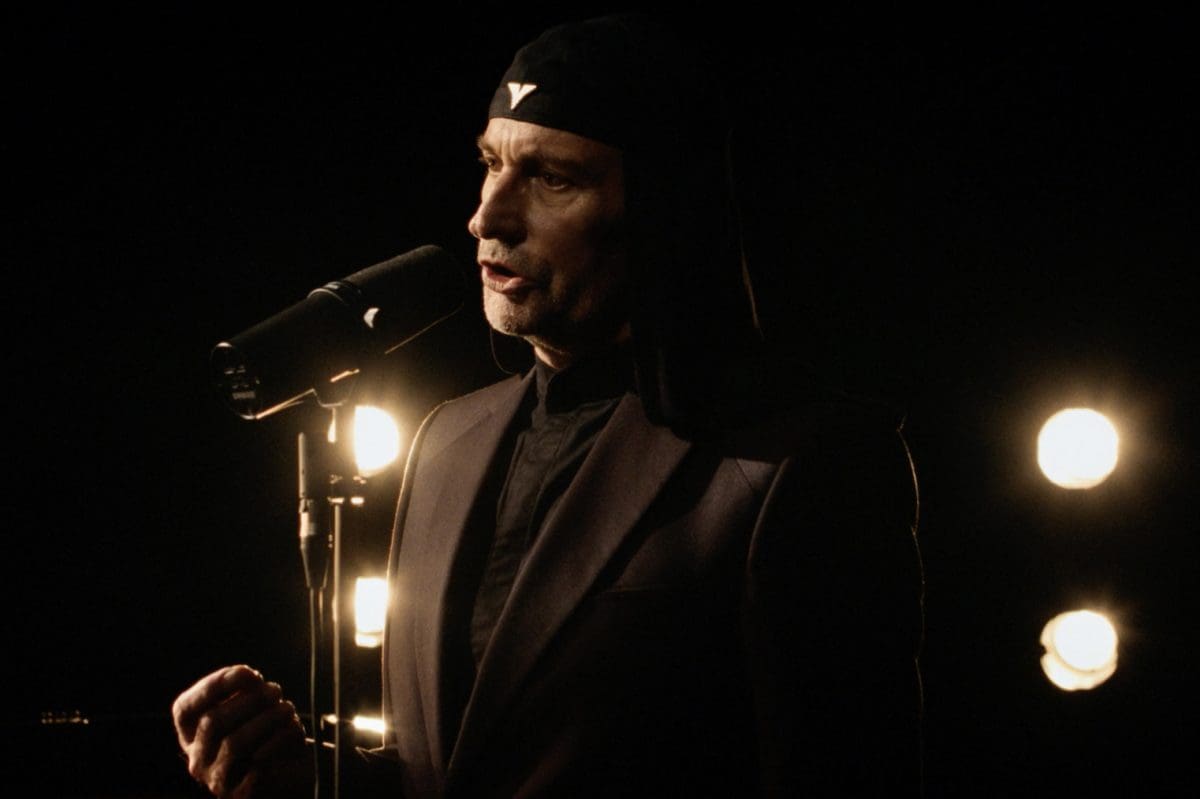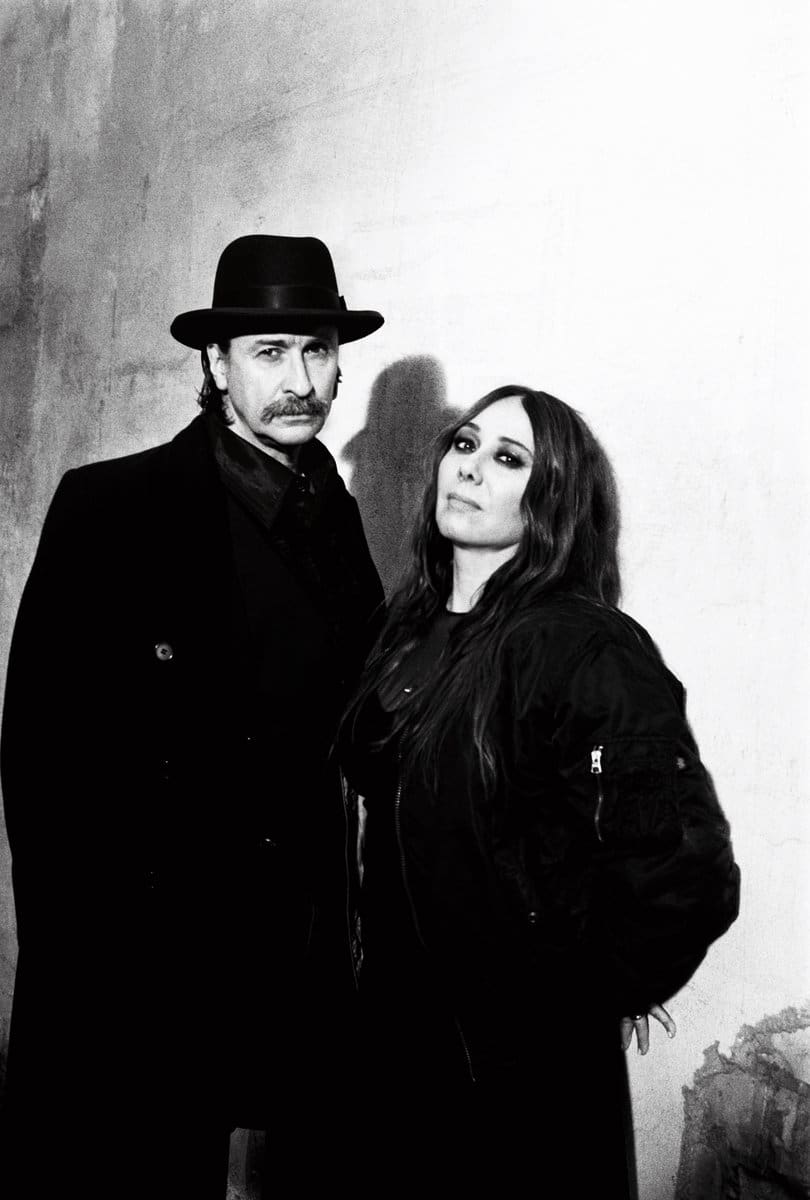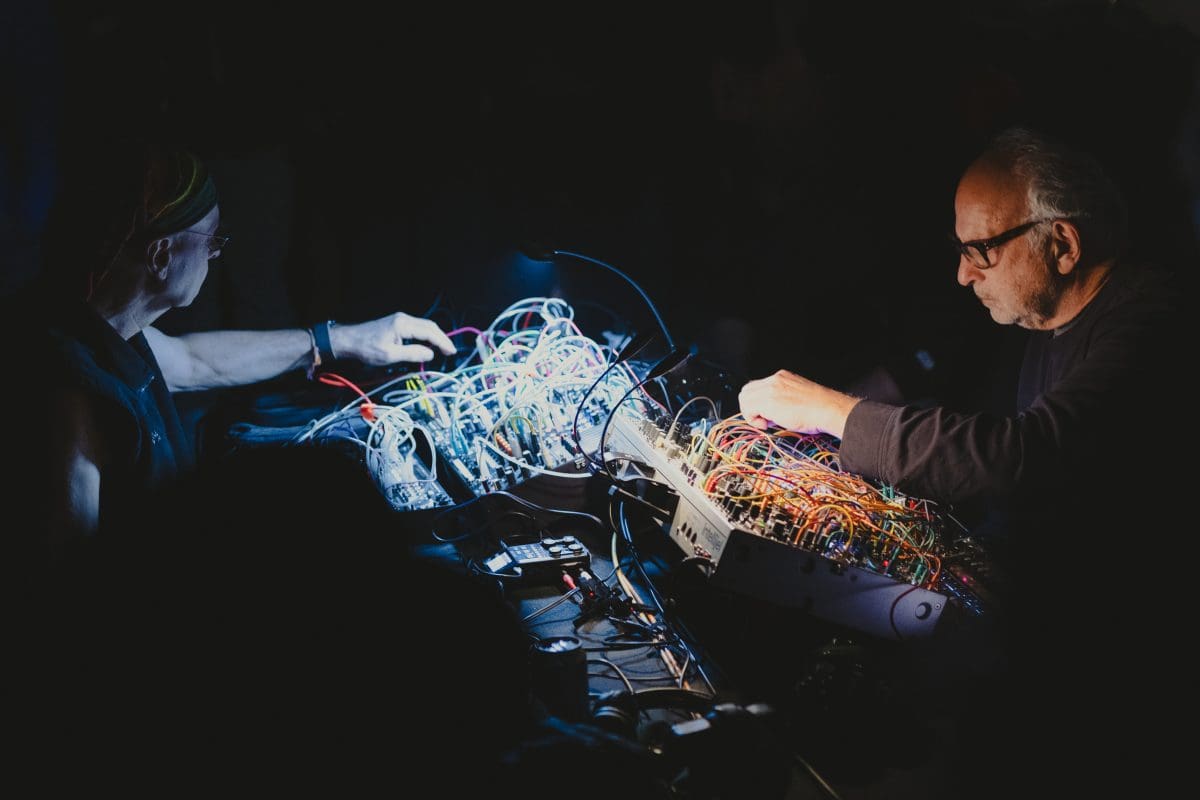Watch now: Previously Unreleased Pictures With Alan Wilder And Douglas McCarthy From Nitzer Ebb

Watch now: Previously Unreleased Pictures With Alan Wilder And Douglas McCarthy From Nitzer Ebb
(Photo by Kevin Westenberg) UK photograph Kevin Westenberg has posted a previously unpublished photo from a Recoil promo shoot for “Bloodline” online. In the photo you can see both Alan Wilder and Douglas McCarthy from Nitzer Ebb.
Westenberg informs that the press shoot took place at the Worx Studios at King’s Cross, London on January 17, 1992. The shoot took place almost exactly 2 years after Westenberg had a Depeche Mode photo shoot.
Kevin Westenberg: “In 1990 Alan contacted me for another shoot. Turned out that while Alan was in the later years of being in Depeche Mode, he had a plan B. Our shoot was for Recoil’s third album, “Bloodline” released on April 14, 1992, which included the single “Faith Healer”. Alan was in fact one of the first musicians I interacted with once moving to London in the early 80’s. Somehow, I ended up at Alan’s flat in NW London interviewing him for a magazine cover story.”
And he adds: “I’ve not looked at this session for 30 years! My memories of the day seem somewhat inconsequential in hindsight. The early 90’s were the busiest and most exhausting daily of my career averaging 100 shoot days per year so this one sadly has been lost in the insanity. For whatever reason this stopped me from reviewing this job. So happy to have reviewed this session all over again and to have found this one. This is because I just saw in the music press that all the Recoil albums have now been re-released via Mute.”
For those who didn’t know, the artwork on these Recoil vinyl reissues slightly differs from the artwork used for the CD’s when they were released.
Fans can contact Westenberg for print sales at kjwestenberg@hotmail.com.
About the Recoil album “Bloodline”
“Bloodline” is the third album by Recoil, released April 14, 1992. It was recorded at Konk Studio in London, during sessions that lasted from January to March 1991, being mixed later that same year. The album was produced by Alan Wilder, engineered by Steve Lyon, and assisted by Dave Eringa.
After completing Depeche Mode’s most successful album, “Violator”, and subsequent “World Violation Tour” (with Nitzer Ebb as the support act), Wilder co-produced Nitzer’s 1991 album “Ebbhead”. This cemented both a good personal and working relationship with Nitzer lead singer Douglas McCarthy. fter completing the Nitzer Ebb album, Wilder went to work on his solo project, and McCarthy returned the favour by performing on the Recoil album.
Other guest vocalists included the then rather unknown musician Moby and Toni Halliday (from Curve). The album also marked the first Recoil single, a cover of the Alex Harvey song “Faith Healer”.
The album is also notable for the track “Electro Blues for Bukka White”, which introduced the idea of taking very old recordings and setting them in a new electronic setting. Moby, who contributed vocals for the song “Curse”, would later release his 1999 breakthrough album, “Play”, which clearly was based on Wilder’s approach for “Electro Blues for Bukka White”. Moby also used several old field recordings by Alan Lomax, again just like Wilder had used a 1937 recording of White’s “Shake ‘Em on Down”.
Since you’re here …
… we have a small favour to ask. More people are reading Side-Line Magazine than ever but advertising revenues across the media are falling fast. Unlike many news organisations, we haven’t put up a paywall – we want to keep our journalism as open as we can - and we refuse to add annoying advertising. So you can see why we need to ask for your help.
Side-Line’s independent journalism takes a lot of time, money and hard work to produce. But we do it because we want to push the artists we like and who are equally fighting to survive.
If everyone who reads our reporting, who likes it, helps fund it, our future would be much more secure. For as little as 5 US$, you can support Side-Line Magazine – and it only takes a minute. Thank you.
The donations are safely powered by Paypal.











